Taihu Lake, located between the provinces of Jiangsu and Zhejiang in China, is known as the "Pearl of the South" for its vast water area, enchanting scenery, and rich historical and cultural significance. As one of China's largest freshwater lakes and one of the Five Great Lakes, Taihu Lake attracts visitors from around the world. This body of water not only boasts picturesque landscapes but also nurtures a diverse ecosystem.
The expansive water surface of Taihu Lake acts like a mirror, reflecting the surrounding mountains, rivers, and sky, resembling a beautiful ink painting. The appearance of the lake changes with the seasons: cherry blossoms bloom in spring, the lake shimmers in the summer sun, autumn leaves paint the landscape red, and winter brings tranquility. Numerous islands dot the lake, each with its unique scenery and stories. Islands like Huashan Island in the center of the lake and the famous Guitou Island offer visitors a mesmerizing experience.
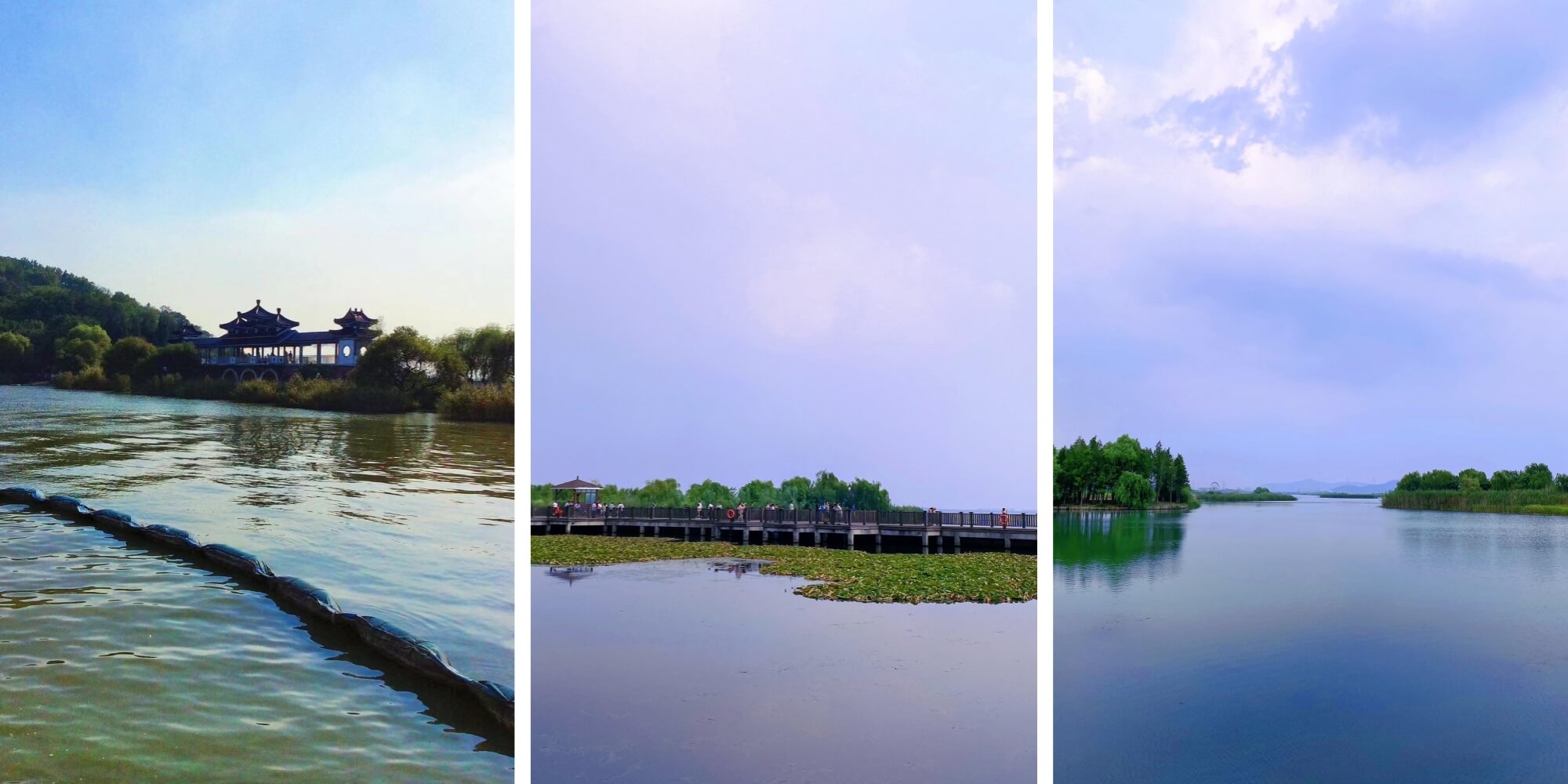
The cultural and historical significance of the Taihu Lake region is equally captivating. Ancient villages and towns along the lakeshore preserve traditional architectural styles and ways of life. Examples include Zhouzhuang and Xitang, where wandering through the streets feels like a journey through time. Nearby cities like Suzhou and Wuxi boast rich histories and unique cultural heritage, including classical gardens and traditional craftsmanship, showcasing the essence of the Jiangnan region.
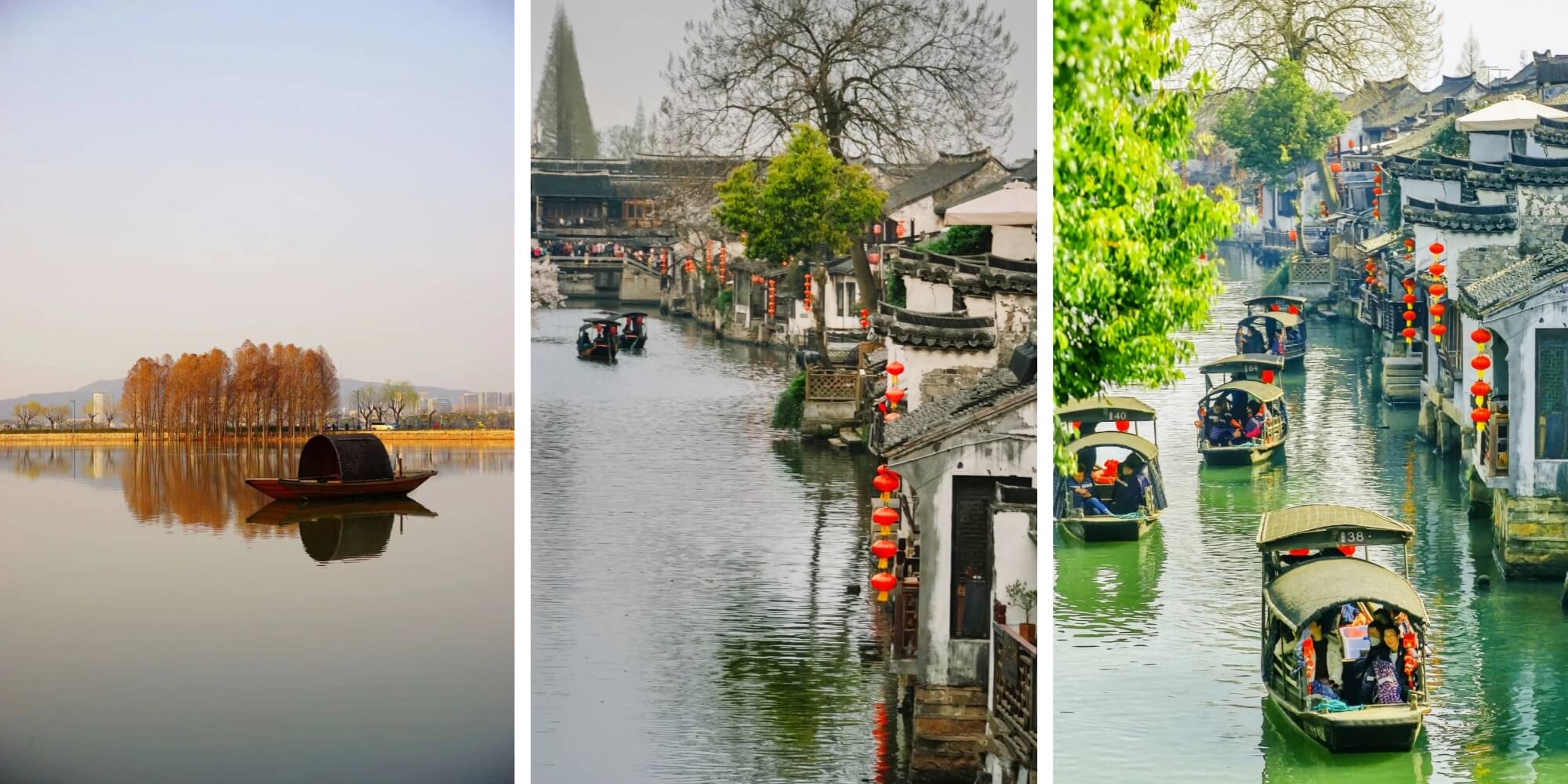
The Taihu Lake area is also an essential natural ecosystem, hosting diverse vegetation and wildlife resources. The lake serves as a vital source of freshwater resources for daily use and agricultural irrigation in the surrounding regions. The wetlands around the lake provide habitats for various rare species, offering sanctuary to a range of wildlife and flora.
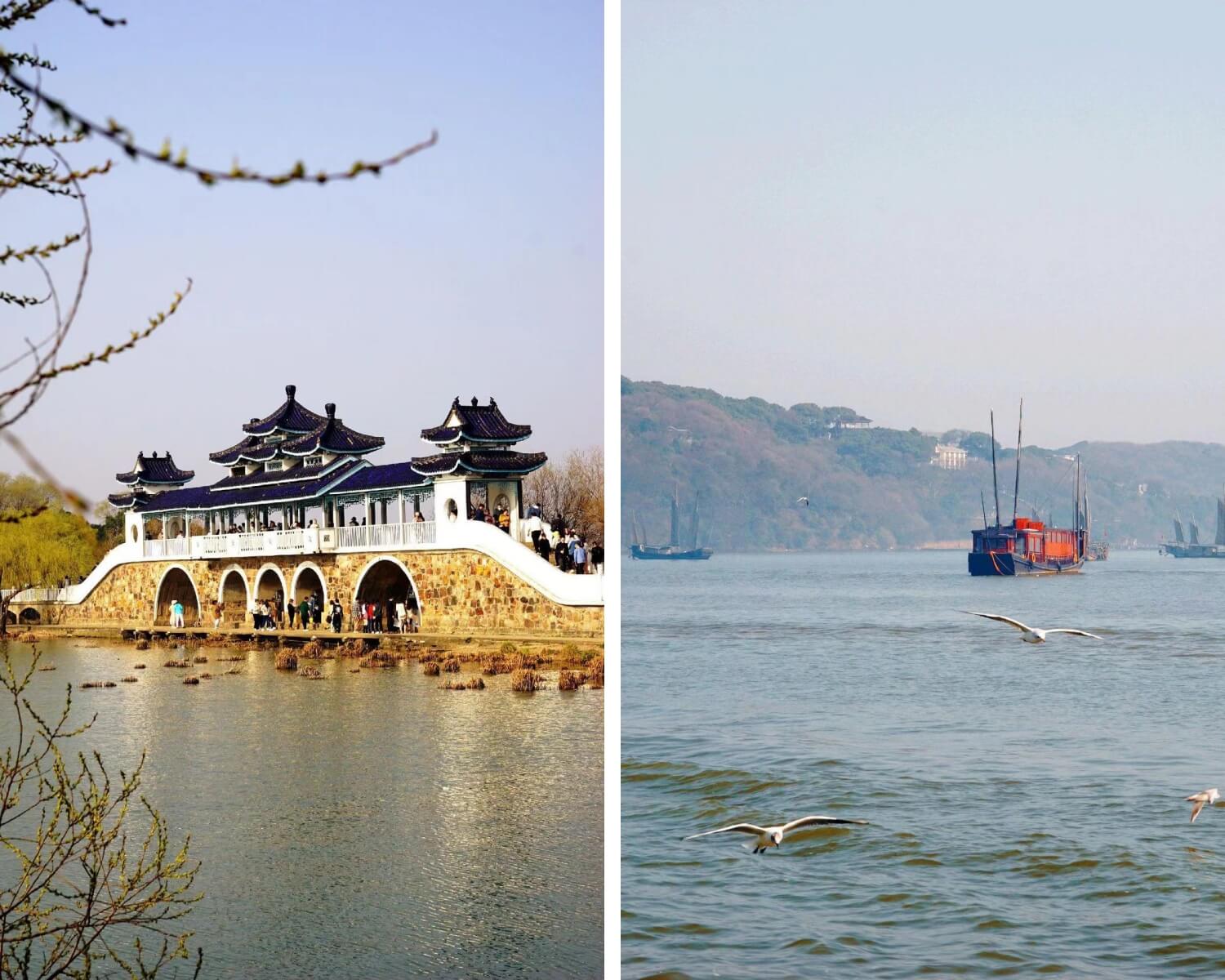
The Taihu Lake Scenic Area is located at the junction of Jiangsu and Zhejiang provinces in China. It is renowned for its magnificent scenery, rich history, and abundant culture. As one of China's largest freshwater lakes, Taihu Lake attracts global tourists with its breathtaking natural landscapes and profound cultural heritage. Here are some highlights of the Taihu Lake Scenic Area:
San Shan Dao (Three Islands) Scenic Area: San Shan Dao is the largest island in Taihu Lake, known for its beautiful natural scenery and historical cultural relics. The island features historical sites such as Tao Yuanming's former residence and Longshan Temple, as well as picturesque lakeside views and tranquil mountain forests.
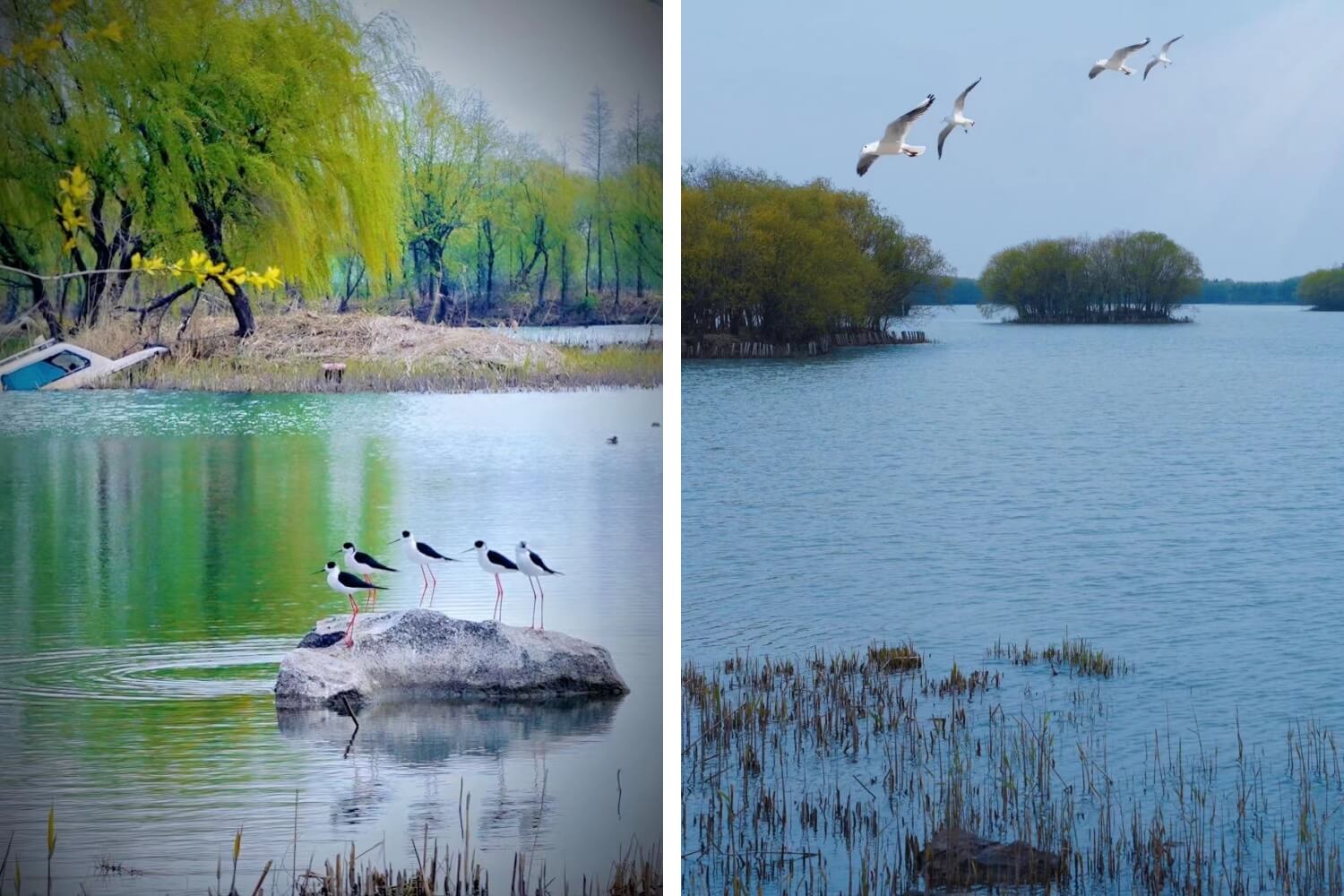
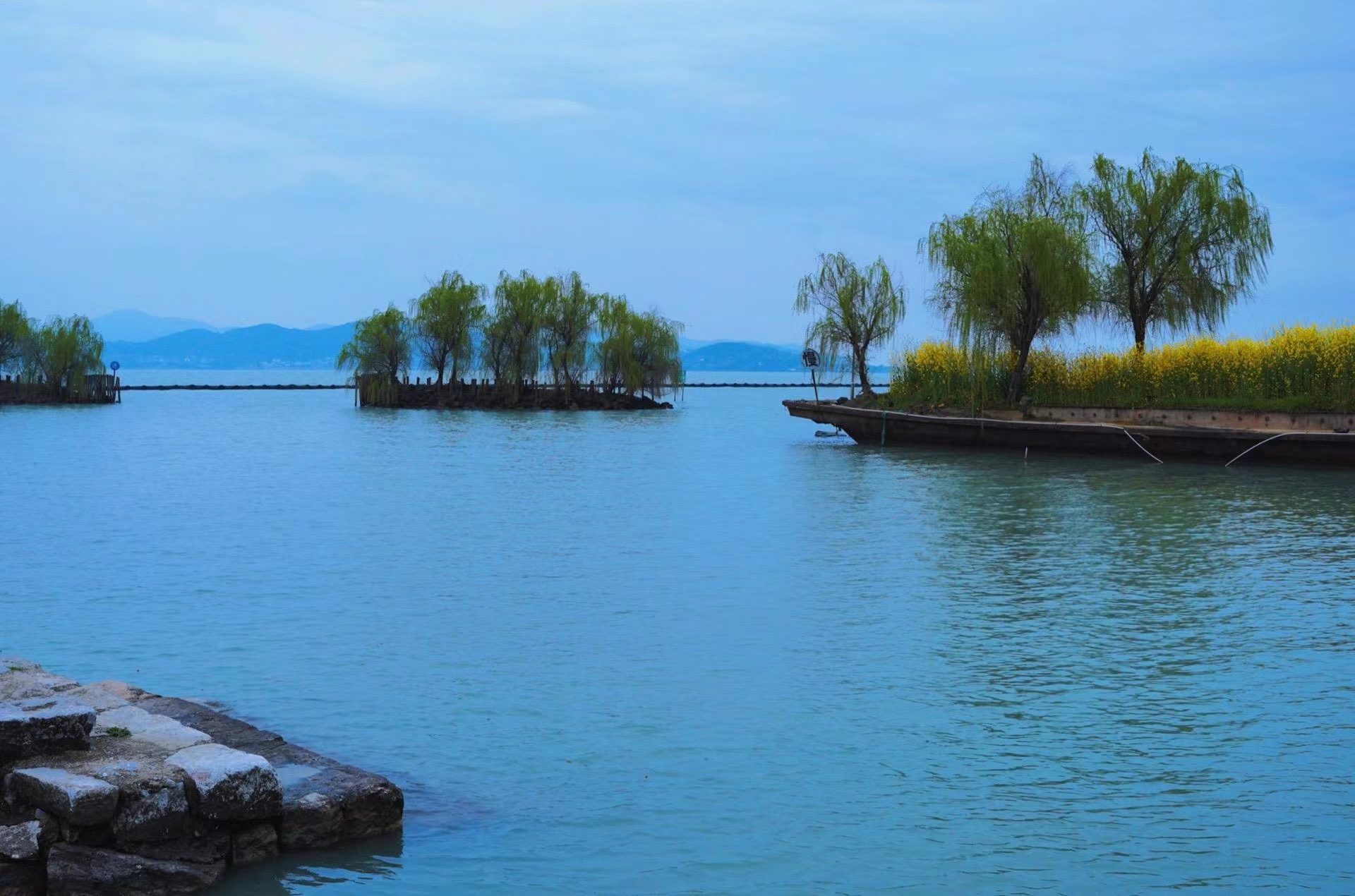
Taihu Wetland Park: This is an important ecological protection area with a vast wetland ecosystem and abundant plant and bird resources. Here, tourists can get up close to wetland ecology and experience the wonders of nature.
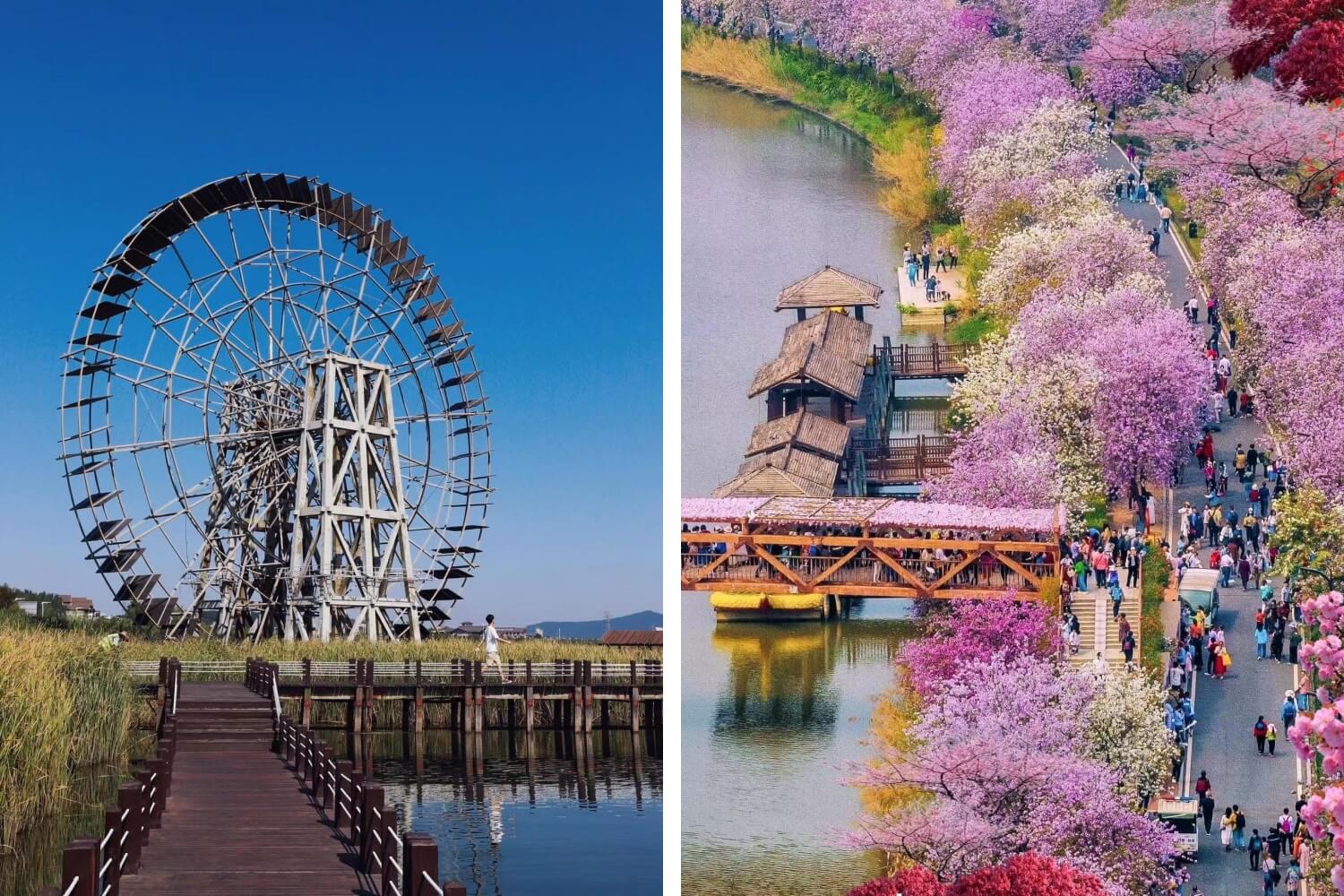
Taohua Island : Taohua Island is a legendary utopia located by Taihu Lake, renowned for its picturesque natural environment and profound history. The area boasts lush bamboo forests, clear streams, and ancient buildings, offering visitors a sense of tranquility and mystery.
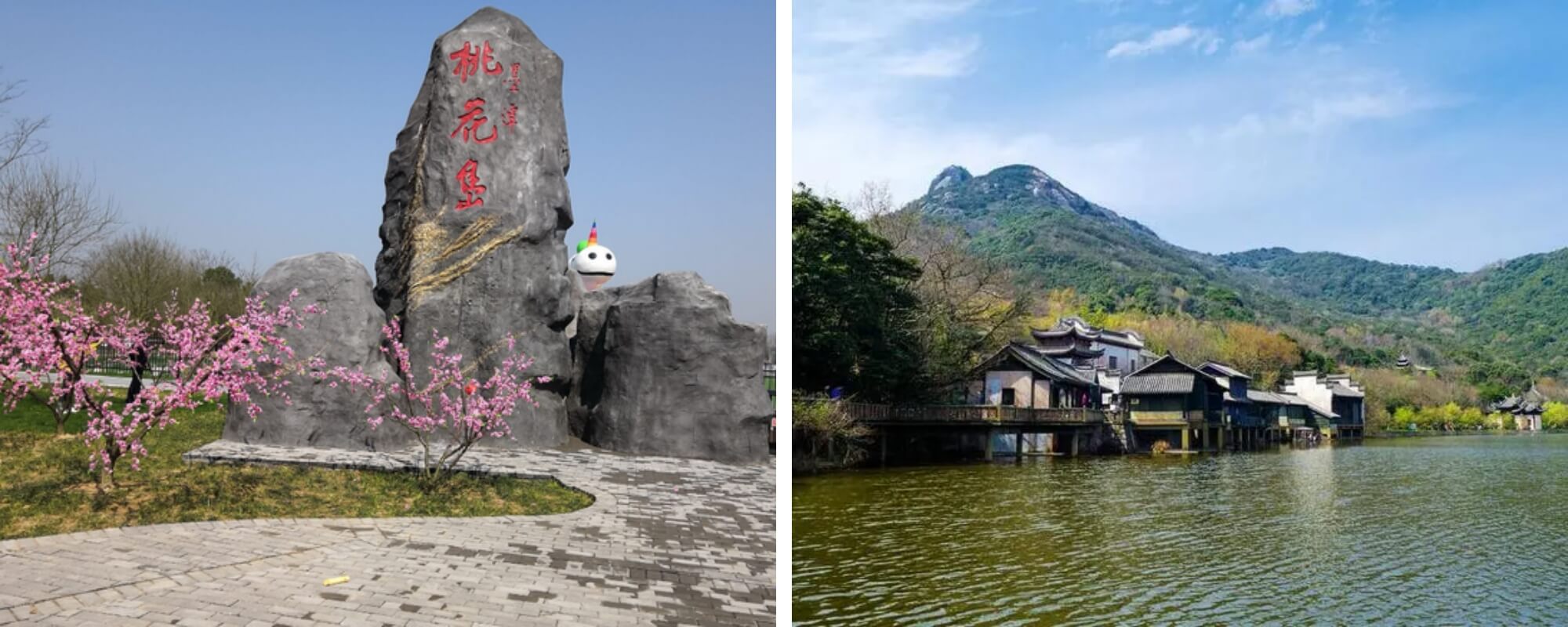
The name "鼋头渚" (Yuántóuzhǔ) is derived from its appearance resembling a turtle lifting its head. It is one of the main attractions within the Taihu Lake Scenic Area (a nationally designated key scenic area).

In conclusion, Taihu Lake stands out for its magnificent natural landscapes, rich historical and cultural heritage, and vital ecological value. It is a region that combines tourism, culture, and ecology. Visitors can immerse themselves in the charm of the Jiangnan region, witnessing the harmonious coexistence of nature and culture. Taihu Lake is a captivating destination for exploration and a beautiful lake that requires collective efforts to protect its precious resources.